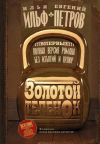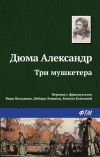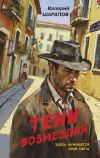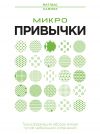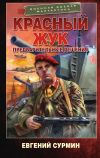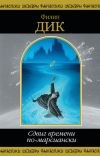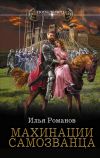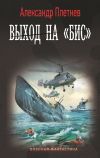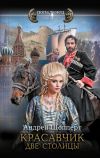Текст книги "Дети капитана Гранта / The Children of Captain Grant"

Автор книги: Жюль Верн
Жанр: Иностранные языки, Наука и Образование
Возрастные ограничения: +12
сообщить о неприемлемом содержимом
Текущая страница: 4 (всего у книги 14 страниц) [доступный отрывок для чтения: 4 страниц]
Chapter XVI. The News of the Lost Captain
Next day, the 22nd of October, at eight o’clock in the morning, Thalcave gave the signal for departure. The travelers made good progress and about four o’clock the Cordilleras lay full forty miles behind them. They were all somewhat fatigued with the journey, and glad enough to halt for the night on the banks of the Neuquem[73]73
Neuquem – Неукен (название реки)
[Закрыть].
No incident of any importance occurred that night or the following day. They rode well and fast, finding the ground firm, and the temperature bearable.
It was the 20th of October, and the tenth day since they had left Talcahuano. They were still ninety miles from the point where the Rio Colorado crosses the thirty-seventh parallel, that is to say, about two days’ journey. Glenarvan kept a sharp lookout for the appearance of any Indians, intending to question them, through Thalcave, about Captain Grant, as Paganel could not speak to him well enough for this.
In the evening the Patagonian stopped Paganel by a gesture, and asked:
“You are in search of a prisoner?”
“Yes,” replied Paganel.
Glenarvan requested him to ask the Patagonian if he had heard of any foreigners who had fallen into the hands of the Indians of the Pampas.
Paganel did so, and waited an answer.
“Perhaps I have.”
The reply was no sooner translated than the Patagonian found himself surrounded by the seven men questioning him with eager glances. Paganel was so excited, he could hardly find words, and he gazed at the grave Indian as if he could read the reply on his lips.
Each word spoken by Thalcave was instantly translated.
“And what about the prisoner?” asked Paganel.
“He was a foreigner.”
“You have seen him?”
“No; but I have heard the Indian speak of him. He is brave; he has the heart of a bull.”
“The heart of a bull!” said Paganel. “Ah, this magnificent Patagonian language. You understand him, my friends, he means a courageous man.”
“My father!” exclaimed Robert Grant, and, turning to Paganel, he asked what the Spanish was for, “Is it my father.”
“Es mio padre,” replied the geographer.
Immediately taking Thalcave’s hands in his own, the boy said, in a soft tone: “Es mio padre.”
“Suo padre,” replied the Patagonian.
He took the child in his arms, lifted him up on his horse, and gazed at him with peculiar sympathy.
“This prisoner, who was he? What was he doing? When had Thalcave heard of him?” asked Paganel.
He had not long to wait for an answer, and learned that the European was a slave in one of the tribes that roamed the country between the Colorado and the Rio Negro.
“But where was the last place he was in?”
“With the Cacique Calfoucoura[74]74
Cacique Calfoucoura – Каксик Кальфоукоура
[Закрыть].”
“And who is this Cacique?”
“The chief of the Poyuches Indians[75]75
Poyuches Indians – индейцы племени пойуче
[Закрыть], a man with two tongues and two hearts.”
“That’s to say false in speech and false in action,” said Paganel. “And when did you last hear of him?”
“A long while ago; the sun has brought two summers since then to the Pampas.”
The joy of Glenarvan can not be described. This reply agreed perfectly with the date of the document. But one question still remained for him to put to Thalcave.
“You spoke of a prisoner,” he said; “but were there not three?”
“I don’t know,” said Thalcave.
“And you know nothing of his present situation?”
“Nothing.”
This ended the conversation.
Chapter XVII. A Serious Necessity
The Argentine Pampas extend from the thirty-fourth to the fortieth degree of southern latitude. The word “pampa” signifies “grass plain[76]76
grass plain – равнина, поросшая травой
[Закрыть]”, and justly applies to the whole region. The mimosas growing on the western part, and the substantial herbage on the eastern, give those plains a peculiar appearance. The soil is composed of sand and red or yellow clay, and this is covered by a layer of earth.
The horses went on at a good pace through the thick grass of the Pampas, so high and thick that the Indians find shelter in it from storms. Thalcave went first to beat the bushes and frighten away the dangerous snakes, the bite of which kills an ox in less than an hour.
For two days they plodded steadily across this arid and deserted plain. The dry heat became severe.
When the Argentines travel in the Pampas they generally dig wells, and find water a few feet below the surface. But the travelers could not fall back on this resource, not having the necessary implements. They were therefore obliged to use the small provision of water they had still left.
Their slumbers were invaded by a swarm of mosquitoes, which allowed them no peace. Their presence indicated a change of wind which shifted to the north.
There was a brief interruption this day to the monotony of the journey. Mulrady, who was in front of the others, rode hastily back to report the approach of a troop of Indians. The news was received with very different feelings by Glenarvan and Thalcave. The Scotchman was glad of the chance of gleaning some information about his shipwrecked countryman, while the Patagonian hardly cared to encounter the Indians of the prairie, knowing their bandit propensities. He wanted to avoid them, and gave orders to his party to have their arms in readiness for any trouble.
Presently the Indians came in sight, they were only ten in number. They came within a hundred yards of them, and stopped. They were dressed in skins, and carried lances twenty feet long, knives, slings, and lassos.
Glenarvan determined to go up to them; but he had no sooner moved forward than the whole band wheeled round, and disappeared with incredible speed.
“The cowards!” exclaimed Paganel. “Who are these Indians, Thalcave?”
“Gauchos[77]77
gauchos – гаучо (название племени)
[Закрыть].”
“The Gauchos!” cried Paganel, and, turning to his companions, added: “There was nothing to fear.”
“How is that?” asked McNabbs.
“Because the Gauchos are inoffensive peasants.”
“You believe that, Paganel?”
“Certainly I do. They took us for robbers, and fled in terror.”
“I rather think they did not dare to attack us,” replied Glenarvan.
“That’s my opinion too,” said the Major, “for if I am not mistaken, instead of being harmless, the Gauchos are formidable bandits. I believe you are wrong, Paganel.”
“Wrong?” replied Paganel.
“Yes. Thalcave took them for robbers, and he knows what he is talking about.”
“Well, Thalcave was mistaken this time,” retorted Paganel. “The Gauchos are agriculturists and shepherds, and nothing else.”
Chapter XVIII. In Search of Water
The streams of fresh water were all dried up; the burning sun had drunk up every thing liquid. Some action must be taken immediately, however; for what little water still remained was almost bad, and could not quench thirst. Hunger and fatigue were forgotten in the face of this imperious necessity.
Paganel asked Thalcave what he thought was best to be done. A rapid conversation followed, a few words of which were intelligible to Glenarvan. Thalcave spoke calmly, but the lively Frenchman gesticulated enough for both. After a little, Thalcave sat silent and folded his arms.
“What does he say?” asked Glenarvan. “I fancied he was advising us to separate.”
“Yes, into two parties. Those of us whose horses are done out with fatigue and thirst are to continue the route as they best can, while the others, whose steeds are fresher, are to push on in advance toward the river. If there should be water enough in the river, they are to wait on the banks till their companions reach them; but should it be dried up, they will hasten back.”
“And what will we do then?” asked Austin.
“Then we shall have to go seventy-two miles south, where rivers abound.”
“It is wise counsel. I shall accompany Thalcave.”
“Oh, my Lord, take me,” said Robert.
“But would you be able for it, my boy?”
“Oh, please, my Lord, take me.”
“Come, then, my boy,” said Glenarvan, delighted not to leave Robert behind. “If we three don’t find out fresh water somewhere,” he added, “we must be very stupid.”
“Well, well, and what about me?” said Paganel.
“Oh, my dear Paganel, you must stay with the reserve corps,” replied the Major. “You are too well acquainted with the 37th parallel and the river and the whole Pampas for us to let you go.”
“I resign myself,” said the geographer.
“But mind, Paganel, no distractions,” added the Major. “Don’t you take us to the wrong place—to the borders of the Pacific, for instance.”
“Oh, you insufferable Major,” replied Paganel, laughing. “But how will you understand what Thalcave says, Glenarvan?” he continued.
“I suppose,” replied Glenarvan, “the Patagonian and I won’t have much to talk about; besides, I know a few Spanish words.”
The three horses went forward. Thalcave sat motionless in the saddle, but often turned his head to look at Robert, and gave him a shout of encouragement and approval, as he saw how well he rode. Certainly the boy deserved praise.
“Bravo! Robert,” said Glenarvan. “Thalcave is evidently congratulating you, my boy, and paying you compliments.”
“What for, my Lord?”
“For your good horsemanship.”
“What would papa say to that?” said Robert, laughing. “He wants me to be a sailor.”
“The one won’t hinder the other[78]78
The one won’t hinder the other. – Одно другому не мешает.
[Закрыть].”
“Poor father,” said Robert; “how he will thank you for saving his life.”
“You love him very much, Robert?”
“Yes, my Lord, dearly. He was so good to me and my sister. We were his only thought: and whenever he came home from his voyages, we were sure of some souvenir from all the places he had been to; and, better still, of loving words and caresses. Ah! If you knew him you would love him, too. Mary is most like him. He has a soft voice, like hers. That’s strange for a sailor, isn’t it?”
“Yes, Robert, very strange.”
“Good, brave papa,” the boy went on, as if speaking to himself. “He put me to sleep on his knee. Ah, my Lord, how we loved him. You will find him?”
“Yes, we’ll find him,” was Glenarvan’s reply, “Thalcave has set us on the track, and I have great confidence in him.”
“Thalcave is a brave Indian, isn’t he?” said the boy.
“That indeed he is.”
“Do you know something, my Lord?
“What is it?”
“That all the people you have with you are brave. Lady Helena, whom I love so, and the Major, with his calm manner, and Captain Mangles, and Monsieur Paganel, and all the sailors on the Duncan. How courageous and devoted they are.”
“Yes, my boy, I know that,” replied Glenarvan.
“And do you know that you are the best of all.”
“No, most certainly I don’t know that.”
About three o’clock a white line appeared in a dip of the road, and seemed to tremble in the sunlight.
“Water!” exclaimed Glenarvan.
“Yes, yes! It is water!” shouted Robert.
They were right; and the horses knew it too, for there was no need now to urge them on.
“Oh, how delicious this is!” exclaimed Robert, taking a deep draught.
“Drink moderately, my boy,” said Glenarvan.
Thalcave drank very quietly, without hurrying himself, taking small gulps. Then he prepared an encampment.
Chapter XIX. The Red Wolves
Night came. The dim light of the stars was all that illumined the plain. The waters of the river ran silently. Glenarvan, Robert, and Thalcave lay in profound slumber on their soft couch of lucerne.
However, the Indian’s sleep did not last long; for at ten o’clock he woke, sat up, and turned his ear toward the plain, listening intently, with half-closed eyes. The horse gave a low neigh, and stretched its nostrils.
This startled the Patagonian, and made him rise to his feet at once.
“The horse scents an enemy,” he said to himself.
He did not wait long, for a strange cry—a confused sound of barking and howling—broke over the Pampas, followed next instant by the report of the carbine.
Glenarvan and Robert woke in alarm, and started to their feet instantly.
“What is it?” exclaimed Robert.
“Is it the Indians?” asked Glenarvan.
“No,” replied Thalcave, “the red wolves of the Pampas.”
Robert drew back involuntarily.
“You are not afraid of wolves, my boy?” said Glenarvan.
“No, my Lord,” said the lad in a firm tone, “and moreover, beside you I am afraid of nothing.”
“Never mind; we are all well armed; let them come. We’ll certainly give them a warm reception,” rejoined Glenarvan.
His Lordship only spoke thus to reassure the child, for a secret terror filled him at the sight of this legion of bloodthirsty animals. There might possibly be some hundreds, and what could three men do against such a multitude?
Thalcave lowered their weapons.
“What does Thalcave mean?” asked Robert.
“He forbids our firing.”
“And why?”
“Perhaps he thinks it is not the right time.”
But this was not the Indian’s reason, and so Glenarvan saw when he lifted the powder-flask[79]79
powder-flask – пороховница
[Закрыть], showed him it was nearly empty.
“What’s wrong?” asked Robert.
“We can’t fire more than twenty times,” was the reply.
The boy made no reply, and Glenarvan asked him if he was frightened.
“No, my Lord,” he said.
“That’s right,” returned Glenarvan.
“What does Thalcave say?”
“He says that at any price we must hold out till daybreak[80]80
hold out till daybreak – продержаться до рассвета
[Закрыть]. The red wolf is a cowardly beast, that loves the darkness and dreads the light—an owl on four feet.”
“Very well, let us defend ourselves, then, till morning.”
The made a fire wall, the wolves could not come nearer. But very soon this means of defense would be at an end. About two o’clock, Thalcave flung his last armful of combustibles into the fire.
The fire was fast dying out, and the end of the terrible drama was approaching. The flames got lower and lower. Thalcave loaded his carbine for the last time, killed one more enormous monster, and then folded his arms. His head sank on his chest, and he appeared buried in deep thought.
At this very moment the wolves began to change their tactics. The howls suddenly ceased: they seemed to be going away. Robert exclaimed:
“They’re gone!”
But Thalcave shook his head. The Indian went up to his horse, who was trembling with impatience. A dark suspicion crossed Glenarvan’s mind as he watched him.
“He is going to desert us,” he exclaimed at last.
“He! Never!” replied Robert. Instead of deserting them, the truth was that the Indian was going to try and save his friends by sacrificing himself.
Glenarvan seized the Patagonian’s arm with a convulsive grip, and said, pointing to the open prairie.
“You are going away?”
“Yes,” replied the Indian, understanding his gesture. Then he said a few words in Spanish, which meant: “A good horse; quick; will draw all the wolves away after it.”
“Oh, Thalcave,” exclaimed Glenarvan.
“Quick, quick!” replied the Indian.
“Robert, my child, do you hear him? He wants to sacrifice himself for us. He wants to rush away over the Pampas, and turn off the wolves from us by attracting them to himself.”
“Friend Thalcave,” returned Robert, throwing himself at the feet of the Patagonian, “friend Thalcave, don’t leave us!”
“No,” said Glenarvan, “he shall not leave us.”
And turning toward the Indian, he said, pointing to the frightened horses, “Let us go together.”
“No,” replied Thalcave, catching his meaning. “Bad beasts; frightened; my horse, good horse.”
“Be it so then![81]81
Be it so then! – Пусть так и будет!
[Закрыть]” returned Glenarvan. “Thalcave will not leave you, Robert. He teaches me what I must do. It is for me to go, and for him to stay by you.”
Then seizing Thaouka’s bridle, he said, “I am going, Thalcave, not you.”
“No,” replied the Patagonian quietly.
“I am,” exclaimed Glenarvan, snatching the bridle out of his hands. “I, myself! Save this boy, Thalcave! I commit him to you.”
Glenarvan was so excited that he mixed up English words with his Spanish. But the two men understood each other.
Glenarvan was blind and obstinate, and determined to sacrifice himself, when suddenly he felt himself violently pushed back. A clear, young voice called out:
“God save you, my lord!”
“Robert! Oh you unfortunate boy!” cried Glenarvan.
The wolves had dashed off at a tremendous speed on the track of the horse.
Glenarvan sank prostrate on the ground, and clasped his hands despairingly. He looked at Thalcave, who smiled with his accustomed calmness, and said:
“A good horse. Brave boy. He will save himself!”
“And suppose he falls?” said Glenarvan.
“He’ll not fall.”
At four o’clock morning began to dawn. The time for starting had arrived.
“Now!” cried Thalcave, “Come.”
Glenarvan made no reply, but took Robert’s horse and sprung into the saddle. Next minute both men were galloping at full speed toward the west. Soon they came up to the little detachment conducted by Paganel. A cry broke from Glenarvan’s lips, for Robert was there, alive and well, still mounted. The horse neighed loudly with delight at the sight of his master.
“Oh, my child, my child!” cried Glenarvan, with indescribable tenderness in his tone. “He is alive, he is alive.”
Glenarvan put his arms round the boy and said,
“Why wouldn’t you let me or Thalcave save us, my son?”
“My lord,” replied the boy in tones of gratitude, “Thalcave has saved my life already, and you—you are going to save my father.”
Chapter XX. Strange Signs
At ten o’clock next morning Glenarvan gave the signal for starting. The leather bottles were filled with water, and the day’s march commenced. The horses were so well rested that they were quite fresh again. No incident of any importance occurred during the 2nd and 3rd of November, and in the evening they reached the boundary of the Pampas, and camped for the night on the frontiers of the province of Buenos Ayres[82]82
Buenos Ayres – Буэнос-Айрес
[Закрыть]. Two-thirds of their journey was now accomplished. It was twenty-two days since they left the Bay of Talcahuano, and they had gone 450 miles.
Next morning they crossed the conventional line which separates the Argentine plains from the region of the Pampas. It was here that Thalcave hoped to meet the Caciques, in whose hands, he had no doubt, Harry Grant and his men were prisoners.
From the time there was marked change in the temperature, to the great relief of the travelers. It was much cooler, thanks to the violent and cold winds from Patagonia. But contrary to what Thalcave had said, the whole district appeared uninhabited, or rather abandoned. It was very strange.
Glenarvan called out:
“Come along, friend Paganel. Thalcave and I can’t understand each other at all.”
After a few minute’s talk with the Patagonian, the interpreter turned to Glenarvan and said:
“Thalcave is quite astonished at the fact, and certainly it is very strange that there are no Indians, nor even traces of any to be seen in these plains.”
“And what does Thalcave think is the reason?”
“He does not know; he is amazed and that’s all.”
“But what must we do then?”
“I’ll go and ask him,” replied Paganel.
After a brief colloquy he returned and said: “This is his advice, and very sensible it is, I think. He says we had better continue our route to the east as far as Fort Independence, and if we don’t get news of Captain Grant there we shall hear, at any rate, what has become of the Indians of the Argentine plains.”
“Is Fort Independence far away?” asked Glenarvan.
“No, a distance of about sixty miles.”
“And when shall we arrive?”
“The day after tomorrow, in the evening.”
Chapter XXI. A False Trail
The Sierra Tandil[83]83
Sierra Tandil – Сьерра-Тандиль
[Закрыть] rises a thousand feet above the level of the sea. It is formed of a semi-circular ridge of hills, covered with fine short grass. The district of Tandil, to which it has given its name, includes all the south of the Province of Buenos Ayres, and terminates in a river.
They reached the postern gate, so carelessly guarded by an Argentine sentinel that they passed through without difficulty.
A few minutes afterward the Commandant appeared in person. Thalcave acted as a spokesman, and addressed the officer, presenting Lord Glenarvan and his companions. While he was speaking, the Commandant kept staring fixedly at Paganel in rather an embarrassing manner. The geographer could not understand what he meant by it, and was just about to interrogate him, when the Commandant came forward, and seizing both his hands, said in a joyous voice, in the mother tongue of the geographer: “A Frenchman!”
“Yes, a Frenchman,” replied Paganel.
“Ah! Delightful! Welcome, welcome. I am a Frenchman too,” he added, shaking Paganel’s hand.
The Commandant related his entire history. The fact was that the Governor of Fort Independence was a French sergeant.
Then Paganel began an account of their journey across the Pampas, and ended by inquiring the reason of the Indians having deserted the country.
“Ah! There was no one!” replied the Sergeant, shrugging his shoulders. “Really no one! Nothing to do!”
“But why?”
“War.”
“War?”
“Yes, civil war between the Paraguayans[84]84
Paraguayans – парагвайцы
[Закрыть] and Buenos Ayriens. Indians all in the north,” replied the Sergeant.
“But where are the Caciques?”
“Caciques are with them.”
This circumstance upset all Glenarvan’s projects, for if Harry Grant was a prisoner in the hands of the Caciques, he must have been dragged north with them. How and where should they ever find him? It was a serious question which would need to be well talked over.
However, there was one more inquiry to make to the Sergeant.
“Had the Sergeant heard whether any Europeans were prisoners in the hands of the Caciques?”
He looked thoughtful for a few minutes. At last he said: “Yes.”
“Ah!” said Glenarvan, catching at the fresh hope.
They all eagerly crowded round the Sergeant, exclaiming “Tell us, tell us.”
“It was some years ago,” replied Manuel. “Yes; all I heard was that some Europeans were prisoners, but I never saw them.”
“You are making a mistake,” said Glenarvan. “It can’t be some years ago; the date of the shipwreck is explicitly given. The Britannia was wrecked in June, 1862. It is scarcely two years ago.”
“Oh, more than that, my Lord.”
“Impossible!” said Paganel.
“Oh, but it must be. There were two prisoners.”
“No, three!” said Glenarvan.
“Two!” replied the Sergeant, in a positive tone.
“Two?” echoed Glenarvan, much surprised. “Two Englishmen?”
“No, no. Who is talking of Englishmen? No; a Frenchman and an Italian. Yes; and I heard afterward that the Frenchman was saved.”
“Saved!” exclaimed young Robert, his very life hanging on the lips of the Sergeant.
“Yes; delivered out of the hands of the Indians.”
Paganel struck his forehead with an air of desperation, and said at last: “Ah! I understand. It is all clear now; everything is explained.”
“But what is it?” asked Glenarvan, with as much impatience.
“My friends,” replied Paganel, taking both Robert’s hands in his own, “we have been on a wrong track. The prisoner mentioned is not the captain at all. Instead of following the track of Harry Grant, we were following the track of a Frenchman and an Italian.”
This announcement was heard with profound silence. The mistake was palpable. Glenarvan looked at Thalcave with a crestfallen face, and the Indian, turning to the Sergeant, asked whether he had never heard of three English captives.
“Never,” the Sergeant. “I am sure.”
After this, there was nothing further to do at Fort Independence but to shake hands with the Commandant, and thank him and take leave.
“Since Harry Grant is not in the Pampas,” exclaimed Paganel, “he is not in America; but where he is the document must say, and it shall say, my friends, or my name is not Jacques Paganel any longer!”
Внимание! Это не конец книги.
Если начало книги вам понравилось, то полную версию можно приобрести у нашего партнёра - распространителя легального контента. Поддержите автора!Правообладателям!
Данное произведение размещено по согласованию с ООО "ЛитРес" (20% исходного текста). Если размещение книги нарушает чьи-либо права, то сообщите об этом.Читателям!
Оплатили, но не знаете что делать дальше?











